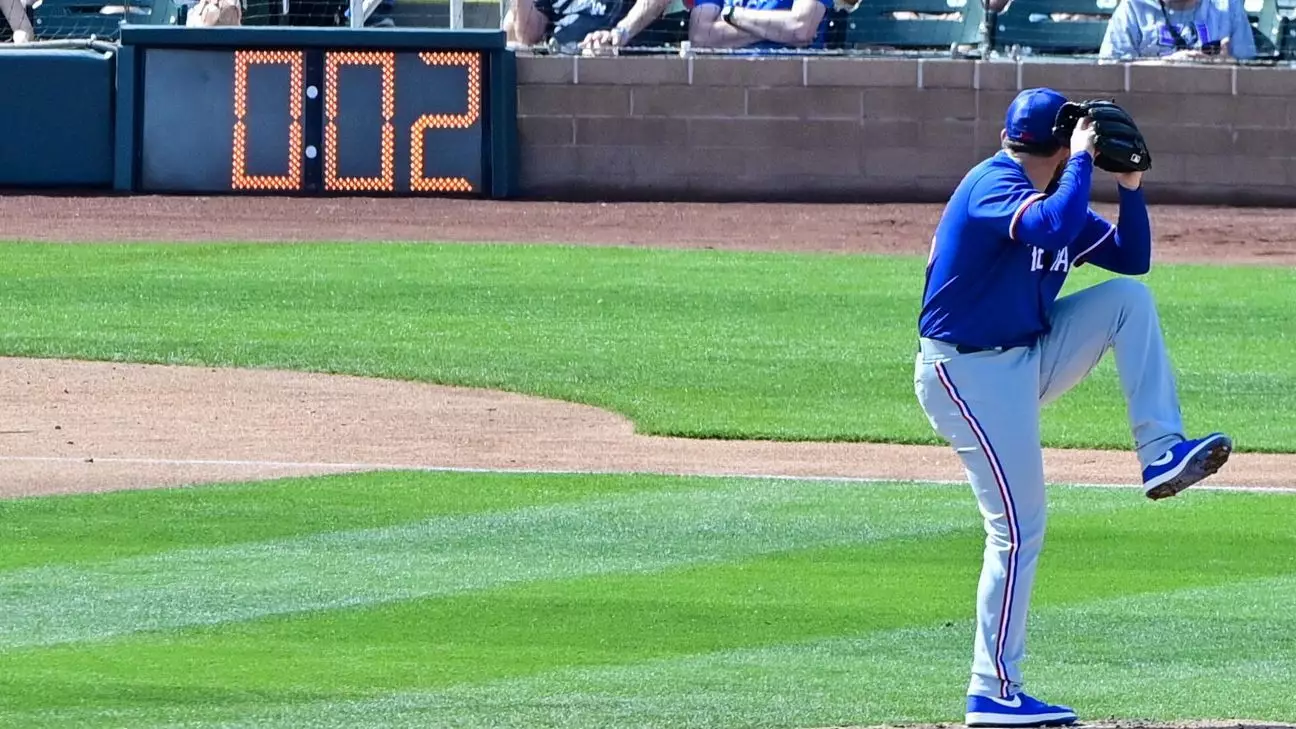Major League Baseball’s decision to reduce the pitch clock by two seconds with runners on base has sparked controversy, with Players’ Association head Tony Clark expressing concerns about the abrupt change. The shortened pitch clock of 18 seconds with men on base, down from 20, is seen as a significant adjustment that may have been rushed. Clark emphasized the need for a more extensive conversation before implementing such changes, especially considering the recent rules overhaul that saw game times reduced substantially.
Clark highlighted the potential negative effects on pitchers who now have less time between pitches to recover, increasing the risk of fatigue-related injuries. As the league focuses on speeding up the pace of play, player safety remains a key issue that should not be overlooked. With the game already undergoing significant adjustments, the impact of further changes on player performance and well-being raises valid concerns.
The ongoing availability of high-profile free agents, such as Blake Snell, Cody Bellinger, J.D. Martinez, and Matt Chapman, has created uncertainty within the league. Despite the talent pool of players waiting to be signed, the absence of a structured free agent signing period has led to prolonged negotiations and delays in finalizing deals. MLB Commissioner Rob Manfred’s proposal for a deadline-driven free agency period has faced resistance from the Players’ Association, which values the current flexibility in contract negotiations.
Clark’s stance on avoiding deadlines for free agent signings underscores the need for a balanced approach that considers the interests of both players and teams. The unresolved status of key free agents reflects a broader issue within the league, where the lack of clarity in contract negotiations can impact player performance and team dynamics. Finding a middle ground that promotes timely signings without compromising player autonomy is crucial for the future of free agency in MLB.
The impending relocation of the Oakland Athletics after the 2024 season has raised concerns about the team’s future home and potential challenges in the transition process. While the franchise aims to move to Las Vegas, the absence of a finalized stadium plan has left the team in a state of limbo. The uncertainty surrounding the Athletics’ future location poses logistical and operational challenges that require swift resolution.
Clark’s advocacy for prompt decision-making regarding the team’s relocation underscores the urgency of addressing the issue to minimize disruptions for players, fans, and the organization as a whole. Whether the Athletics opt to extend their lease in Oakland, explore alternative venues like Sacramento or Salt Lake City, or await the completion of a new stadium in Las Vegas, timely action is essential to ensure continuity and stability for the team moving forward.
2028 Olympic Participation and Player Interest
The prospect of MLB players participating in the 2028 Los Angeles Olympics has generated excitement among athletes, with many expressing interest in representing their country on the international stage. While players like Bryce Harper have shown enthusiasm for the opportunity, logistical considerations and scheduling constraints remain key factors in determining their involvement. Clark’s cautious approach to navigating the complexities of Olympic participation reflects the need for comprehensive planning and collaboration to make the event a success.
As discussions continue regarding MLB players’ potential participation in the 2028 Olympics, the need for clarity and coordination between the league, players, and relevant stakeholders becomes increasingly important. Balancing the competitive aspirations of athletes with logistical challenges and operational requirements will be crucial in determining the extent of MLB’s involvement in future Olympic games.


Leave a Reply